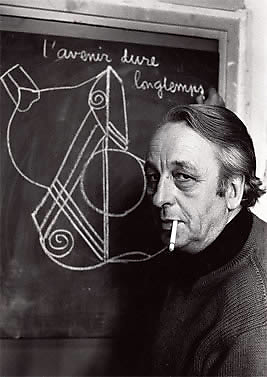In academic terms, Althusser’s legacy has been predominantly interpreted as a scientism and stalinism, but this misses on some troubled yet essential intellectual formulations that have arisen out of his work. Often, especially amongst the British left, Althusser is seen as an elitist and irrelevant academic, but Althusser's attempt to think marxism with philosophy have implications for many an ideology.
Althusser remains surprisingly popular as an introduction to Marx. His works like Pour Marx and the essays on over-determination and humanism, emphasise the systemic dimension of Marx’s work, and its scientific rendering of categories to comprehend the work of the structure piercing through the spontaneous bourgeois interface of surface appearances. The argumentative structure of these interpretations mostly revolves around a challenge to the idea that Marx’s dialectic was an inversion of Hegel’s idealist one. Althusser maintains that the uniqueness of thought as content in Hegel, essentially the unity of content and form, means that the dialectic retains a fundamental simplicity. Whilst this dialectic is possible in the realm of the self-development of spirit or the absolute, it can not be translated as a materialist method because the content of the material world is always over-determined, that is, a combination of different and contradictory elements. According to Althusser this complex concrete totality is always presupposed by Marx and his method can not be understood as original development from the simple to the complex.
That this purging of the Hegelian dialectic, coincided with more political attacks on existentialism and humanism is well documented. The ensuing controversy too involves the role of history in Marx and Marxism which Althusser opportunistically presented as in essence anti-historicist. The general intellectual environment here is the deconstruction of the subject; its existence as posited by the structure, or bearer of social relations above it – and in general terms the link with post-structuralism is easy to perceive.
source: generation-online.org


